Disagreements, differences of opinion, misunderstandings, poor communication and emotional flare-ups can all lead to disputes and conflict between individuals and groups within the workplace. Often these everyday conflicts are minor and soon forgotten but they can also escalate further and get out of hand.
In situations where there appears to be conflict within the workplace it is the responsibility of the Line Manager to attempt to resolve the issue in the first instance in an informal manner. If the complaint is against the Line Manager, the complainant is advised to seek advice from the next level of management.
What is mediation?
Mediation, put simply, is facilitated negotiation. A mediator is someone who has been trained to assist the parties to communicate and negotiate effectively with each other. The mediator helps parties in dispute to find solutions that make more sense to both of them rather than continuing in dispute. In a facilitated mediation, the mediator does not impose his/her views or a decision upon the parties but, throughout the mediation, remains neutral, thus allowing the parties to remain in control of both the dispute and the outcome.
Mediation does not allow for a set procedure. The mediation may be conducted entirely in private sessions (meetings with the mediator and each party separately). It may take place almost entirely in a joint session (where the mediator meets with all of the parties together). More commonly, it would involve a combination of the two, commencing with individual discussions and then if both parties are in agreement continuing with a joint session.
What are the benefits of mediation?
- Mediation is the modern, practical, commercial way to resolve disputes:
- Mediation takes less time than it would if issues were allowed to escalate.
- Mediation is a private process. At mediation, if one party does not like what is on offer they do not have to settle. In most cases however, the parties are able to arrive at a mutually agreed solution in order to bring the dispute to an end.
- The parties maintain control over the process. The mediator will pace the meeting in a way that both parties can feel comfortable with and also maintain a relaxed atmosphere.
- The mediator will not force the parties to be in the same room against their will.
- Mediation is not risky for the parties. Decisions will not be imposed on parties as they would if the matter were to become formal.
- Mediation can be an opportunity to repair damaged relationships. Formal proceedings (complaints/grievances etc.) are likely to have the opposite effect.
- Mediation often results in a win/win scenario where the formal process will often result in a winner and a loser or even two losers.
- Mediation can result in creative solutions where the parties have the opportunity to explore methods of resolving the dispute in a way that more formal procedures cannot.
One or two mediators?
The mediators will often work in pairs. This enables them to be more resourceful and can also help the parties to feel more at ease.
Is mediation always appropriate?
Mediation is not appropriate in every case. The mediators will be honest with the parties if they feel that mediation is not the way ahead.
How about confidentiality?
Mediation is a strictly confidential matter. Anything that is discussed will not be passed on by the mediators to other parties. This includes Line Managers.
Procedure for requesting the service of a trained mediator.
A request for mediation is to be forwarded by Line Management to: LEC HR, BFPO 16. The request can be forwarded by email to
The request should include the following:
- A very brief outline of the dispute details (why mediation is sought, as far as is known).
- Who is involved, including categories of employee (DEL, DEP, UKBC etc.)
- Whether a request has been made for a second mediator from another employee category.
- Preferred date and location.
What happens next?
A mediator will be appointed who will then make contact with the parties to discuss details further. The mediator will contact the Line Manager also to find a suitable venue (away from the actual building/unit where the parties actually work).
The mediator will not discuss the case further with the Line Manager or report back with results, unless this is the specific wish of both parties. The LM will simply be told whether the mediation was successful or unsuccessful.

